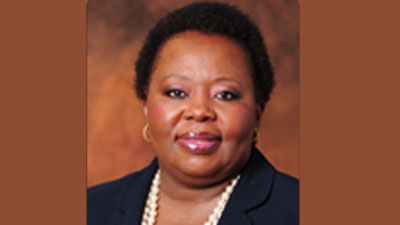April 27th 1994 was an emotional day in our country’s history. Not only was it the first time our new flag was hoisted, but also the day we took our first steps as a truly democratic nation. We were excited about the election and had high hopes that freedom would bring a better life for all.
During his inauguration as the first democratically elected President of the Republic of South Africa, former President Nelson Mandela clearly expressed his vision for the country: “Our daily deeds as ordinary South Africans must produce an actual South African reality that will reinforce humanity’s belief in justice, strengthen its confidence in the nobility of the human soul and sustain all our hopes for a glorious life for all.”
South Africa has undoubtedly come a long way since 1994. We can be proud of our achievements in building a new and united nation out of the divisions of the past. The country has steadily been moving forward to build a culture of human rights and a respect for dignity.
Frankly, as a nation we do not credit ourselves enough about what we accomplished on 27 April 1994 and the following years. At the launch of Freedom Month on 10 April 2013, President Jacob Zuma called upon all South Africans to “use” the month of April to take time and consider our impressive achievements since the advent of democracy in our country. He added: “We must reflect on the strides we have made in achieving the vision of a better life for all.”
To guide us as we “reflect”, the Census 2011 results offer unbiased insight on just how much life has changed, and undeniably improved for millions of South Africans since 1994. According to the results, more South Africans now live in formal dwellings and have access to water, electricity and sanitation. They also showed that the average household income increased 113% over the last 10 years – well above inflation.
Moreover, Census 2011 found that school enrolment and overall educational performance have significantly improved since Census 1996. The percentage of South Africans with no schooling has sharply decreased, while South Africans completing their secondary education increased.
Frankly, as a nation we do not credit ourselves enough about what we accomplished on 27 April 1994 and the following years.
We have also made considerable progress insofar as the provision of health care to South Africans is concerned. The Medical Research Council of South Africa’s 2011 Rapid Mortality Surveillance Report bore testimony to the fact that South Africans’ life expectancy increased from 56.5 years in 2009 to 60 years in 2011.
The country currently has the largest HIV counselling and testing programme in the world. As part of this programme, mother-to-child transmission of HIV has sharply declined. Also, there are about 1.9 million patients on ARV treatment in South Africa.
Since 1994 Government has moreover put a great deal of effort into reducing crime levels and ensuring that the South African Police Service (SAPS) offers protection to all communities. Between the financial years 2003/04 to 2011/12, the SAPS annual statistics showed that serious crime declined by 33.8 per cent.
Although South Africans’ lives have changed significantly since 1994, we cannot, and will not rest on our laurels but continue steadfastly on the road to meet former President Mandela’s vision for “a glorious life for all”.
To achieve this, Government has created a 2030 Vision through the National Development Plan (NDP) which outlines the society we want as a nation.
President Zuma stated: “The Plan outlines the type of society we are striving for in 2030, where no one is hungry, where everyone is able to go to school and further their studies, where work is available, where everyone is making a contribution because each person has been provided with what they need to live their full potential.”
Government is mindful we cannot achieve the country’s 2030 Vision by ourselves and that we need all South Africans to work with us to ensure the success of the NDP.
The President called on all of us to “actively participate in building this country”. He said: “Leadership throughout society from communities, schools, businesses and across the three spheres of government must drive the change to realise Vision 2030.”
As a country, we can only create a better life for all if we do so in unison. It is our shared responsibility to build a strong and prosperous nation where everyone can reach their full potential.
Phumla Williams is the Acting Chief Executive Officer of the Government Communication and Information System (GCIS).
– By OPINION: Phumla Williams, Acting CEO of GCIS


